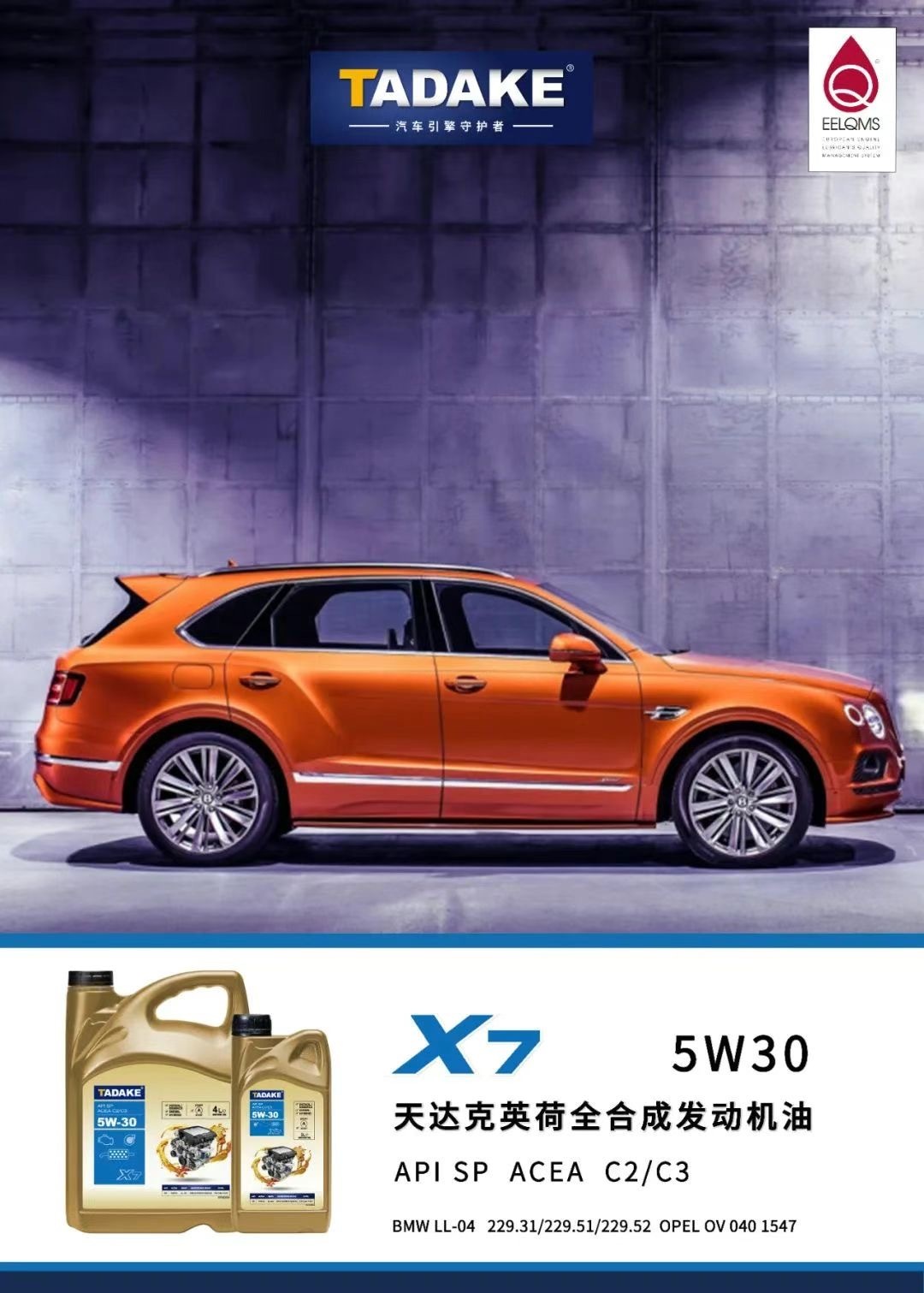Precise oil use | Engine noise is caused by these reasons
Release time:
2024-01-26
Engine oil is the blood of the engine. I believe everyone has heard this sentence. When the engine is working, it needs engine oil for lubrication, so as to reduce the wear between parts. In addition to lubrication and anti-friction, engine oil also plays important roles in assisting cooling, preventing rust and corrosion, sealing and preventing leakage, and shock absorption and buffering. Different engines require different types of engine oil. Currently, automobile engines are structurally divided into two types: naturally aspirated and turbocharged. The engine oil types include mineral oil and synthetic oil. Self-priming engines do not have high requirements for engine oil, and general mineral oil can meet the needs. But turbocharged engines are different and generally require the use of semi-synthetic or fully synthetic engine oil. I believe many car owners have encountered some problems, such as which type of engine oil to use, 5W-30 or 5W-40. In addition, some car owners found that the engine sound was abnormal after changing the oil. What's going on? The engine sound suddenly became louder after changing the oil.

Too much oil added | When too much oil is added to the engine, the oil will create unnecessary resistance to the rotation of the crankshaft, thereby affecting power output and increasing fuel consumption.
When there is too much engine oil, it will also escape from the gap between the cylinder and the piston into the combustion chamber for combustion, causing an increase in carbon deposits in the combustion chamber, increasing the movement resistance of the piston, and reducing the engine power. At the same time, these carbon deposits will increase the engine compression ratio and increase the probability of knocking. The red hot state of carbon deposits in the cylinder can easily cause premature combustion, and the carbon deposits will aggravate the wear of the cylinder and piston. The increase of carbon deposits will also have a qualitative impact on the engine oil. In short, too much engine oil increases the stirring resistance of the crankshaft connecting rod, and the noise will also increase.
Engine oil viscosity is not suitable | Different grades of engine oil have different characteristics, and their low-temperature start-up properties and high-temperature anti-wear and adhesion properties also have different performances.
The viscosity of engine oil is inversely proportional to temperature. When the engine is cold, the viscosity of the engine oil is higher. If the oil selected is thicker, it will cause additional losses to the starter motor, battery, etc. However, if the engine oil is too thin, it will be difficult for the engine to form a sufficient protective film when operating at high temperatures, resulting in insufficient lubrication and rapid wear of the machine parts.
For example, the vehicle manual originally required the use of 5W-30 engine oil. When using 5W-40 engine oil instead, the engine noise was a bit loud at first, but after using it for a period of time, it became normal. Afterwards, the engine oil was replaced with 5W-30 engine oil, and the engine noise still became louder. , it returns to normal after being turned on for a period of time. This is a normal phenomenon.
However, if the vehicle manual recommends using 5W-30 engine oil, and the engine noise becomes louder after using 5W-50 engine oil, you need to pay attention, so it is best to choose the engine oil with the grade recommended by the vehicle manual.
Engine oil | I used to use high viscosity engine oil, but now I have changed to low viscosity engine oil. For example, the vehicle manual originally required the use of 5W30. Many car owners did not pay attention and directly used 5W-40 engine oil. As a result, they felt that it was not suitable for them after using it. After my car was replaced with 5W30, the noise was loud at first, but then it decreased after driving for a while. This is normal.
If the sound persists, it is not normal. It is recommended to replace it with the one with the required number in the manual. Tip: When the vehicle reaches a certain mileage, for example, after 60,000 to 80,000 kilometers, the internal clearance of the engine increases, so replace it with a higher viscosity one. It is usually not recommended to change engine oil to low viscosity oil, because after changing to low viscosity engine oil, it needs to be re-run-in, which will aggravate the wear of parts and cause loud noise.
The use of engine oil outside the range results in loud noise. The engine oil has been working in a harsh environment of high temperature and pressure for a long time. The engine also has high performance requirements for the oil. If the use time or kilometers exceed the range.
As the oil's fluidity, cleaning, lubrication and other properties are lost, it will cause increased noise and even cause other problems. It is recommended that car owners follow the maintenance instructions in the vehicle owner's manual to perform maintenance on time, or follow the instructions on the oil barrel. Instructions for maintenance.

Different brands use different technical formulas. Different formulas may produce adverse chemical reactions, change their own characteristics, cause wear to the lubrication system parts, and increase noise. Many mixing problems occur, so it is recommended that car enthusiasts should not mix oils and try to use the same brand of oil.
If you need to change the engine oil of a different brand under special circumstances, it is best to change the brand without changing the label. Even if the viscosity of engine oil is recommended in the vehicle manual, you should still use this viscosity when using another brand of engine oil.
The cylinder volume is severely carbonated | Because the old engine oil becomes thinner with use, there is more and more carbon deposits. When the engine oil is thin, it is easy to channel the oil, causing more and more carbon deposits, thereby losing a lot of power. When new engine oil is replaced, the engine cannot adapt to the viscosity of the engine oil, which may increase the speed, thereby causing the engine noise to become louder.
Mixing different brands of engine oil | Different brands use different technical formulas. After all, engine oil is a chemical product. Different formulas may produce adverse chemical reactions, change its own characteristics, cause wear to the lubrication system parts, and increase noise. It is recommended not to mix engine oils and try to use the same brand of engine oil. If you need to replace different brands of engine oil under special circumstances, it is best to use the same brand of engine oil, that is, the viscosity of the engine oil recommended in the vehicle manual. If you add another brand of engine oil, use this viscosity.
Related News


